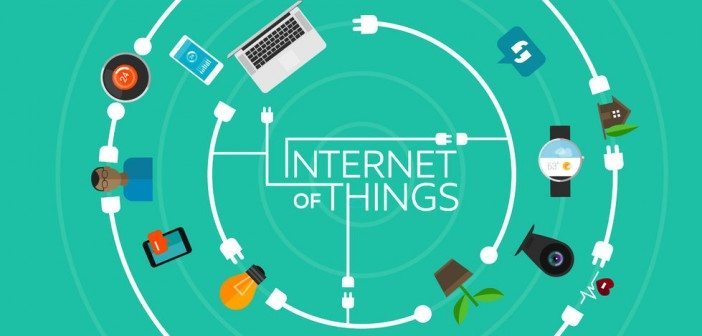As we all know that the Internet of Things (IoT) is becoming the next technological revolution. By 2020 the revenue generated from IoT products and services will be exceeded $300 billion as per the Gartner.
Considering the huge amount of revenue and data the IoT will generate, its huge impact will be felt across the entire big data universe, compelling maximum companies to upgrade current tools and processes. It also compelling technology to evolve to accommodate this extra data volume and take advantage of the insights all this new certainly will deliver.
It also compelling technology to evolve to accommodate this extra data volume and take advantage of the insights all this new certainly will deliver.
Have a look at the different ways in which the IoT will impact big data:
Data Storage
When it comes to IoT, the first thing that comes to mind is a huge and constant stream of data hitting companies’ data storage. It is a must that data centers must be equipped to handle this extra load of heterogeneous data.
Giving a reply to this direct impact on big data storage infrastructure, a lot of organizations are moving toward the Platform as a Service model rather than keep their own storage infrastructure, that would need constant expansion to handle the load of big data.
As you know that PaaS is a cloud-based managed solution, which delivers scalability, flexibility and compliance and a classy architecture to store valuable IoT data. Cloud storage options comprise private, public and hybrid models.
If all the companies and organizations have sensitive data or data, which is subject to regulatory compliance needs that require heightened security, a private cloud model that might be an excellent option. Instead of this, a public or hybrid model can be chosen as storage for IoT data.
Data Security
Different types of devices, which make up the IoT and the data they make will vary in nature – raw devices, varied types of data and communication protocol. It transmits intrinsic data security risks. However, the varied IoT world is completely new to security professionals and insufficient experience boosts security risks.
Any kind of attack can threaten more than just the data – it could damage the connected devices themselves. Moreover, IoT data will need different organizations to make some important changes to their security landscape. Such type of devices will be of different shapes and sizes and situated on the outside of the network.
Thus, it is a must that every single device has a non-reputable identification for authentication purposes. Enterprises should get all the detail information about these connected devices and store them for audit purposes.
So, for developing trusted connectivity between public and private networks, all the internal and external core routers/switches must be instrumented with X.509 certificates.
Big Data Technologies
At the time of choosing the technology heap for big data processing, the wonderful influx of data, which will be delivered by IoT needs to be kept in mind. It is essential for organizations to adapt technologies to map with IoT data. Computer power, network, and disk all will be impacted and need to be planned to take care of this important data.
Looking at this from a technology perspective, the essential thing is to get events from IoT-connected devices. Using Wi-Fi, Bluetooth, and another technology, devices can be combined to the network; however, it must be able to send messages to a broker using some well-defined protocol.
Message Queue Telemetry Transport is the most widely used protocol today whereas Mosquitto is a popular open-source MQTT broker. If you once receive the data, the next thought is the technology platform to store the IoT data.
Enormous companies make use of Hadoop and Hive to store big data, but when it comes to IoT data, NoSQL document databases like Apache CouchDB are more suitable as they deliver high throughput and low latency.
Such kinds of databases are schema-less that supports the flexibility to add new event types a lot easily. Some of the other well-known IoT tools are Apache Kafka for intermediate message brokering and Apache Storm for real-time stream processing.
Big Data Analytics
Basically, IoT and big data are two different sides of the same coin. When it comes to managing, and extracting value from IoT data, it is the biggest challenge that most of the companies are facing. However, organizations need to set-up a proper and accurate analytics platform/infrastructure to analyze the IoT data. And you should remember that not all the IoT data is essential.
Performance, right-size infrastructure, and future growth are the three parameters of proper analytics platform that should be considered. For rich performance, a bare-metal server and a physical server dedicated to a single customer is the best fit. However, the hybrid is also the best approach for infrastructure and future growth.
Hybrid placements that consist of cloud, colocation, managed hosting and dedicated hosting, covering excellent features from multiple platforms into a single optimal environment. Moreover, managed service providers are also working on their platforms to handle IoT data. To shelter the whole IoT domain, MSP vendors are mainly working on the infrastructure, performance and tools.
IoT devices are known for making constant streams of data in a highly flexible way and there are lots of companies that need to handle the huge stream data and perform actions on that data. Developing an analytics solution to manage the scale of IoT data, it must be done with these differences in mind.
With the constant development of the IoT, it messengers a new technology and companies wish to participate in this new era to change the way they do things to accommodate new data kinds and data sources.